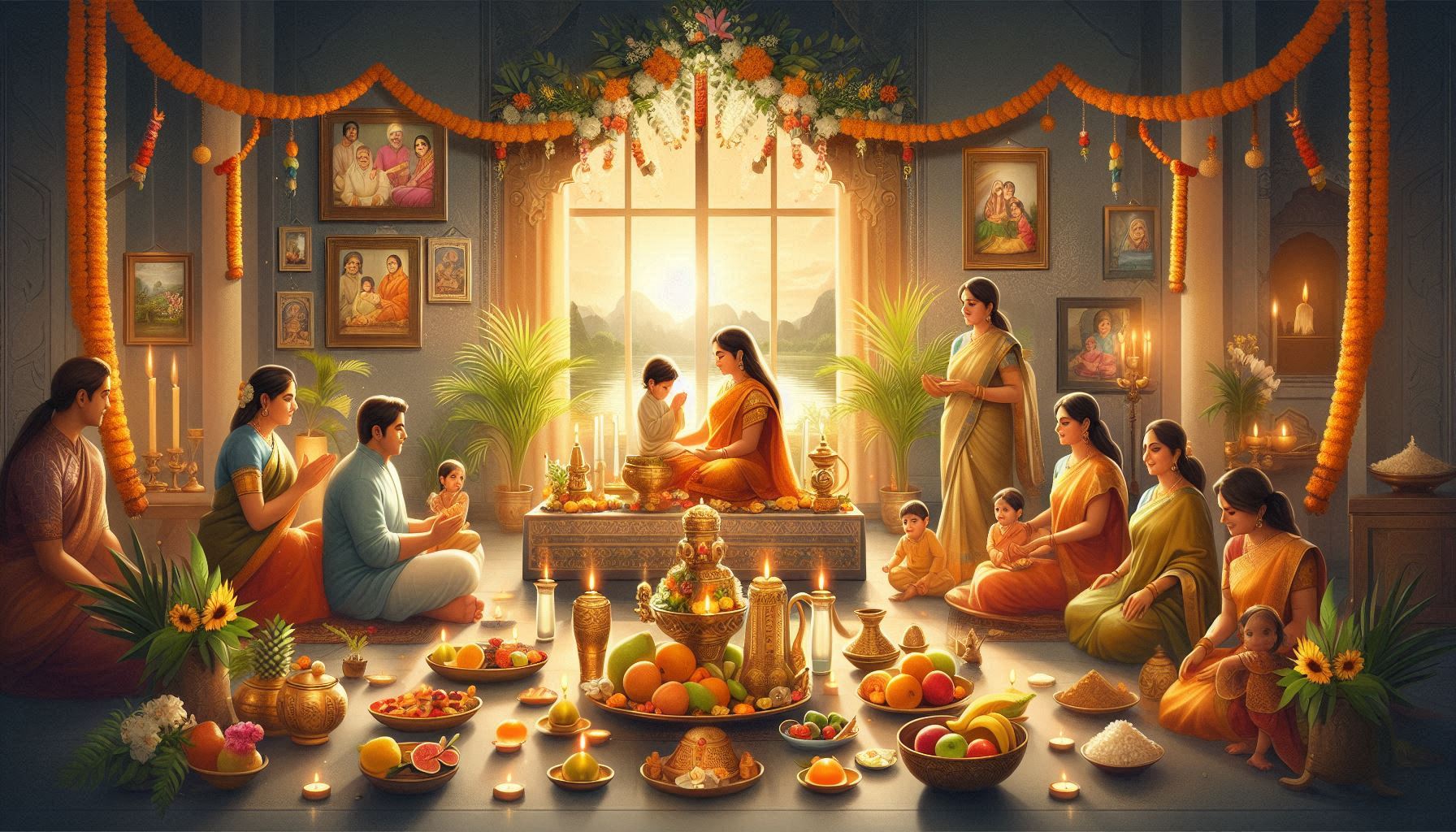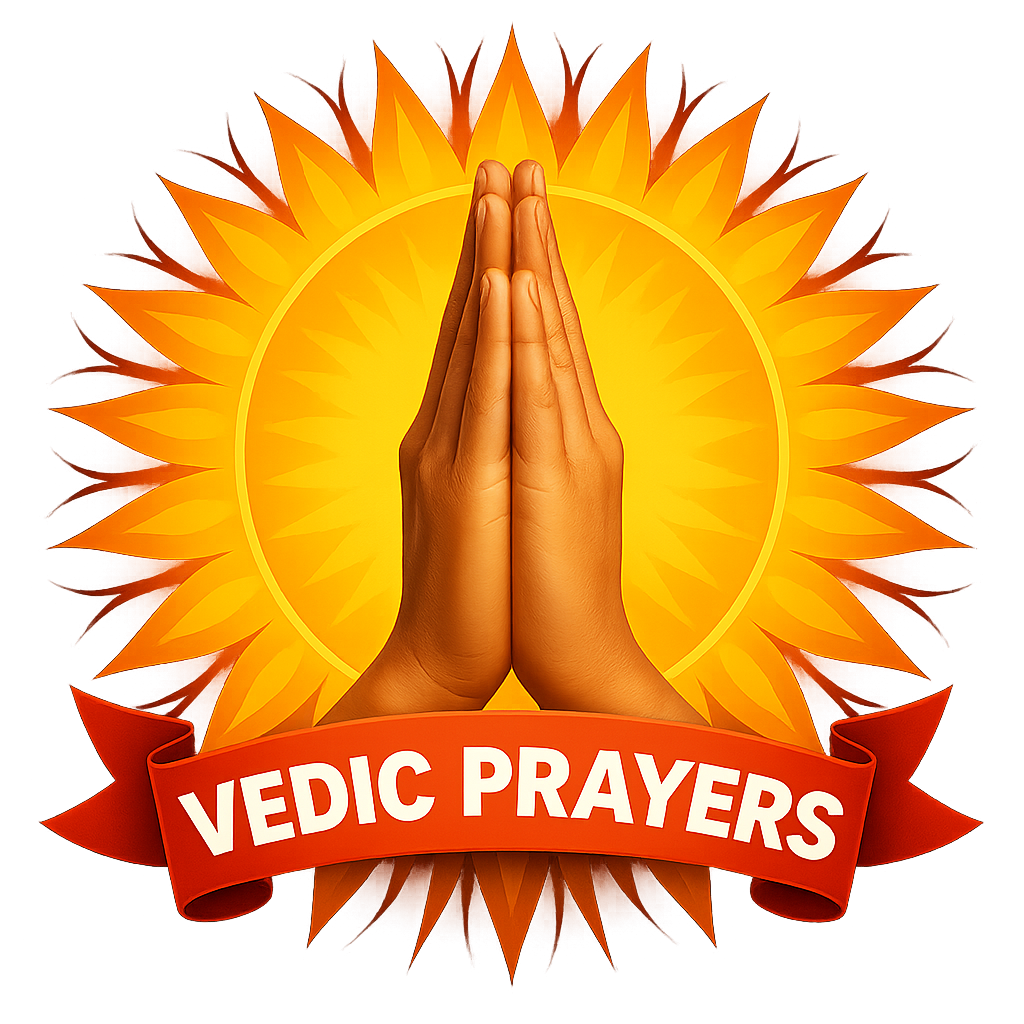
Dwitiya Shraddha is a special festival observed during Pitru Paksha, also known as Duj Shraddha. It is a day dedicated to offering peace and respect to the souls of ancestors. Pitru Paksha begins from the full moon of the Bhadrapada month in the Hindu calendar and continues until the new moon of the Ashwayuja month.
To Whom Is This Ritual Dedicated:
Dwitiya Shraddha is specifically performed on the Dwitiya tithi of Pitru Paksha for those ancestors whose death anniversary falls on this day or for whom it is particularly dedicated.
In 2025, Dwitiya Shraddha will be observed on September 9.
Significance of Dwitiya Shraddha:
- Peace for Ancestral Souls: The rituals performed on this day are believed to bring peace to the souls of ancestors and invoke prayers for their happiness and tranquility.
- Family Prosperity: It is believed that performing Shraddha on this day brings happiness, prosperity, and peace to the family. It also provides an opportunity to gather family members and recall family history and traditions.
Why Dwitiya Shraddha is Performed:
Dwitiya Shraddha is particularly performed during Pitru Paksha with the primary objective of ensuring peace and respect for ancestors’ souls. The main reasons include:
1. Peace for Ancestral Souls:
- It is performed for ancestors whose death anniversaries fall on the Dwitiya tithi. Special rituals and offerings are made to ensure their souls' peace and happiness.
- It is believed that performing Shraddha brings contentment and happiness to ancestors and peace to their souls.
2. Family Prosperity:
- Expressing respect and devotion to ancestors on this day ensures family happiness and prosperity. It is believed that blessings from ancestors maintain harmony and balance in family life.
- It fosters unity and mutual love among family members.
3. Religious and Cultural Significance:
- It provides an important opportunity to observe religious and cultural traditions, bringing family members together to follow traditional practices.
- Shraddha expresses gratitude and respect for ancestors, which is an important tradition in Hinduism.
4. Spiritual Benefits:
- Performing rituals and worship during Dwitiya Shraddha provides spiritual peace and merits. It is believed that honoring ancestors brings positive energy and merits into one's life.
5. Following Traditions:
- In Hinduism, respect and reverence for ancestors are highly valued. Dwitiya Shraddha is a way to uphold this tradition, maintaining religious discipline and family values.
Dwitiya Shraddha is not just a religious duty but also an opportunity for family members to honor and remember their ancestors.
Who Should Perform Dwitiya Shraddha?
Dwitiya Shraddha should be performed by those whose ancestors' death anniversaries fall on the Dwitiya tithi (second day). The following individuals typically perform this Shraddha:
- Sons: If the father or mother passed away on second tithi, the son performs the Shraddha.
- Grandsons: If the son is not present, the grandson (son's son) performs the Shraddha.
- Other Family Members: If there are no direct descendants, other relatives (brothers, nephews, etc.) may perform the Shraddha.
Dwitiya Shraddha Rituals:
- Bathing and Dressing: On the day of Dwitiya Shraddha, wake up early, bathe, and wear clean clothes.
- Location Selection: Choose a sacred place in the house or a special site for the worship.
- Inviting a Priest: Invite a priest or religious person to perform the rituals and Shraddha ceremonies.
- Tarpan and Pind Daan: Offer Tarpan, oblations, and Pind Daan in the names of ancestors. This is done with sesame seeds, barley, puffed rice, and other materials.
- Food and Donations: Feed and donate to priests or Brahmins. Donations may include grains, clothes, or money.
Dwitiya Shraddha Rituals Include:
- Tarpan: This is done specifically to satisfy the ancestors' souls, using water and sesame seeds.
- Rituals: During the worship, special mantras are chanted, and respect and reverence for ancestors are expressed.
- Gifts and Donations: Offering food and donations to priests or Brahmins is done according to religious traditions, which is a means to gain merits.
















